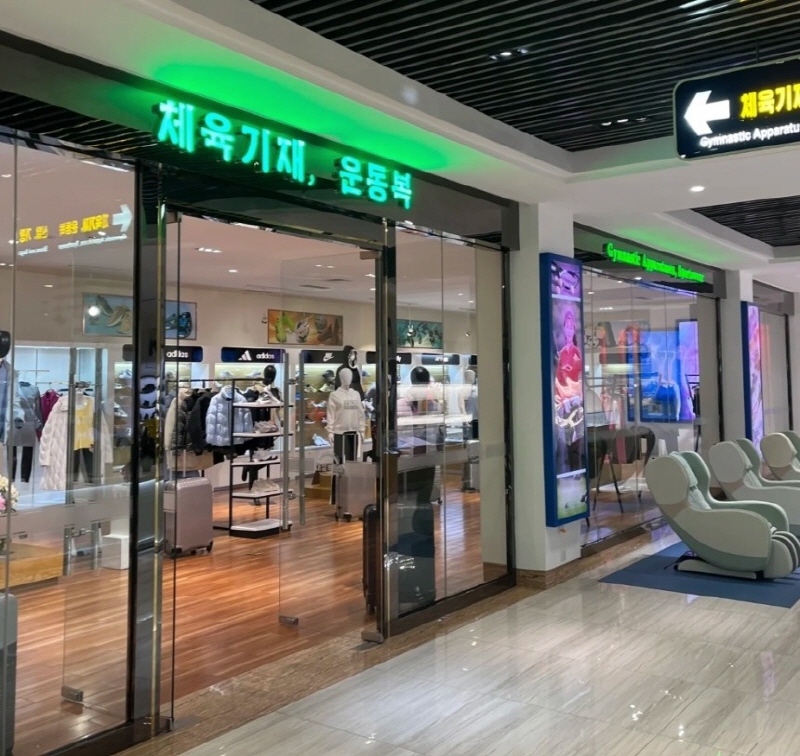North Korea’s Daesong Department Store, located in Pyongyang’s Munsu Street, is reportedly stocking a range of high-end international brands, according to social media posts by Chinese students currently studying in the country.
This development raises questions about North Korea’s compliance with international sanctions that explicitly ban the import of luxury goods.
Under United Nations Security Council (UNSC) Resolution 1718, adopted in 2006, luxury items such as wines, liquors, and high-end consumer products were banned from being exported to North Korea. The scope of this ban was further expanded in 2013 under Resolution 2094 to include luxury cars, yachts, high-end watches, and jewelry.

Despite these restrictions, images recently uploaded to social media platforms by Chinese students studying in North Korea reveal displays of internationally renowned brands at the Daesong Department Store. Photos show a sports section with Adidas and Nike shoes and apparel, while the cosmetics section features well-known products from Chanel and SK-II.
A video shared by one student shows a food section displaying bottles of premium whiskey, including Ballantine’s 12-year and 17-year bottles, along with shelves stacked with Japanese cigarette brand Seven Stars.
Reports suggest that North Korea’s elite class, including the country’s leader Kim Jong-un and high-ranking officials, continues to access luxury goods despite sanctions. Experts believe these items are smuggled into the country through “dual-use trade” routes or by utilizing diplomatic channels.
One notable case involves North Korea’s purchase of a Mercedes-Benz Maybach S600, reportedly used as Kim Jong-un’s personal vehicle. The Italian company that facilitated the transaction claimed it believed the sale was to Hong Kong, not North Korea, according to a report by the UN Panel of Experts on North Korean Sanctions.
The Daesong Department Store, a state-run commercial hub reportedly managed by the Office 39 of the Workers’ Party — the department responsible for managing Kim Jong-un’s slush funds — is seen as a key distribution point for luxury goods in Pyongyang.
The store, which consists of five above-ground floors and a basement level, sells an extensive range of products. From the first to the third floor, customers can find over 11,700 types of goods, including food, clothing, footwear, home appliances, daily necessities, and school supplies.

The fourth and fifth floors house restaurants and an entertainment arcade, while the basement level features amenities such as swimming pools and bathhouses. The store’s pricing strategy caters to a wide range of customers, with products available at both affordable and premium price points.
While there is clear evidence that North Korea continues to obtain and distribute luxury goods, enforcement of the sanctions faces significant hurdles. The UN Panel of Experts reported in 2020 that bottles of well-known whiskey brands were spotted at the Daesong Department Store. The panel stated that while it is clear that North Korean authorities are involved in the importation of these goods, there are no effective mechanisms in place to prevent their domestic distribution.
Smuggling operations involving North Korean institutions and individuals have been detected, but the political landscape complicates enforcement. Efforts to impose stricter measures through the UN Security Council are often blocked by China and Russia, making it difficult to introduce new resolutions.
The Daesong Department Store remains a crucial node in the regime’s economic and political control, with its operations reflecting the continued opulence enjoyed by North Korea’s elite, despite the hardships faced by the general population.
BY JAESUNG BAE, YOUNGNAM KIM [kim.youngnam@koreadaily.com]




